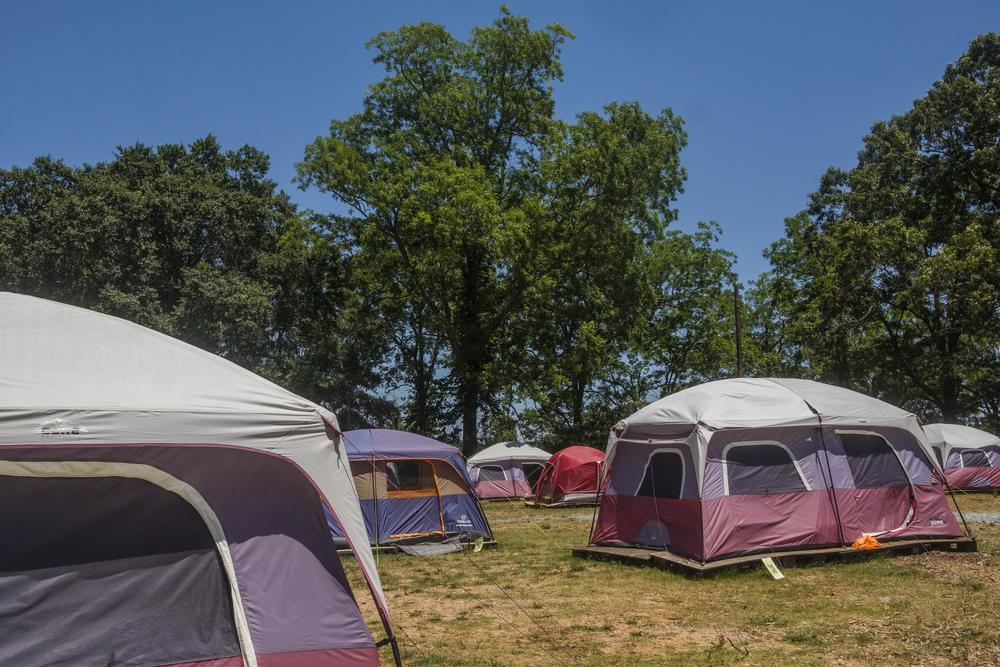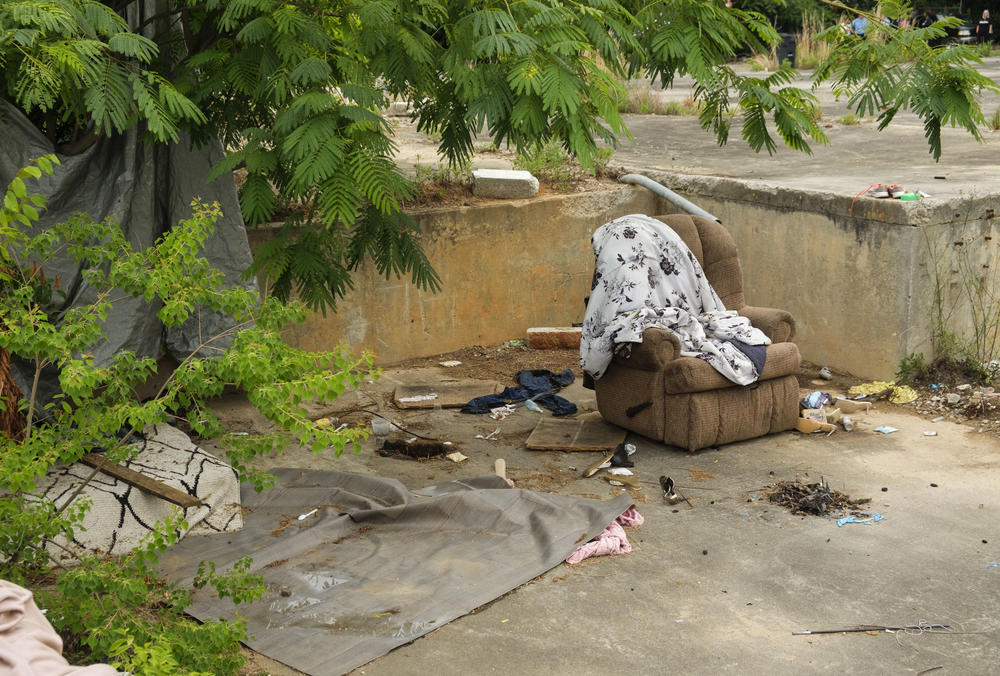
Caption
The 1st Step emergency homeless shelter in Athens has running water, toilets, an outdoor kitchen and some recreational rooms, but the personal spaces are all family-sized tents on their own platforms. There’s enough room for 55 people and there’s a waiting list to get in.
Credit: Grant Blankenship / GPB News



